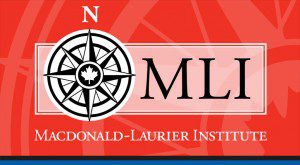 The governing Liberals’ tanker moratorium plan risks resurrecting unresolved disputes with the United States over Canada’s historic claims to west coast waters.
The governing Liberals’ tanker moratorium plan risks resurrecting unresolved disputes with the United States over Canada’s historic claims to west coast waters.
By Robert Hage, the Globe and Mail, Nov. 23, 2015
Last Friday, Prime Minister Justin Trudeau gave Transport Minister Marc Garneau a “top-priority” mandate to work with fellow cabinet ministers to “formalize a moratorium” on crude-oil tanker traffic on British Columbia’s North Coast. This is not a new idea.
In 2010, Joyce Murray, Liberal MP for Vancouver Quadra and a former provincial environment minister, introduced a private member’s bill to legislate a tanker ban off the B.C. coast. Her bill was one of five advanced between 2007 and 2011 by opposition Liberal and New Democratic members to stop the development of the Enbridge Northern Gateway oil pipeline and terminal project.
Mr. Garneau’s mandate resuscitates these failed legislative attempts. But if the government wants to stop the pipeline, there are much easier ways to do so.
The earlier bills all proposed to amend relevant Canadian legislation to ban tanker traffic in the so-called Fishing Zone 3 north of Vancouver Island, an area comprising Dixon Entrance, Hecate Strait and Queen Charlotte Sound. To “formalize” an effective moratorium or ban, as the Prime Minister proposes, the new government would seem to have little choice but to take such a legislative route. While the mandate does not define the “North Coast,” it would seem to parallel the area from previous proposals.
What has not been recognized in these proposals is that efforts to ban crude-oil tankers in this area open a Pandora’s box of issues involving the United States: Canada’s historic claims to some of these waters, the unresolved Alaska Panhandle boundary, the passage of U.S. nuclear submarines through Dixon Entrance, innocent passage, freedom of navigation, fishing rights. Yet the new Foreign Affairs Minister was not included in Mr. Garneau’s mandated ministerial consultative group.
Since the 1890s, Canadian authorities have maintained that Dixon Entrance (just south of the Alaska Panhandle) and Hecate Strait (east of Haida Gwaii) are historic internal waters of Canada. Under international law, Canada has complete sovereignty over such waters and can legislate at will. In 1963, prime minister Lester Pearson advised the House of Commons that Canada would make its claim clear (as it subsequently did with the Northwest Passage in 1985) by drawing “straight baselines” across these waters as well as across Queen Charlotte Sound, southeast of Haida Gwaii. Canada took no action until 1971, when Pierre Trudeau’s government drew “fishing closing lines” around the same area to create an exclusive Canadian fishing zone.
That the government refrained from sealing off this large area with straight baselines and denying foreign vessels the right of innocent passage was likely to avoid provoking the United States, which has been consistent in protesting against Canadian actions affecting what it regards as its maritime rights on the North Coast.
Canada’s actions rest on the supposition that these waters belong to Canada. Canada, one of the world’s largest coastal states, has been a champion of coastal state claims to wider areas of jurisdiction. The United States, a world maritime power, has been an advocate for the rights of flag states. Even though U.S. tankers carrying crude oil from Alaska to the Lower 48 do not come along B.C.’s North Coast, it is hard to imagine the United States not protesting against a Canadian tanker ban that rests on Canada’s unilateral internal waters claim.
The proposed tanker moratorium raises other questions. The American-owned Kinder Morgan pipeline already ships Alberta bitumen to the Port of Vancouver for onward shipment to Asia through the Gulf Islands and Juan de Fuca Strait. The company has applied to triple the pipeline’s capacity, but it would not be affected by the tanker moratorium.
Proposed tanker shipments of liquefied natural gas from locations along the North Coast would also not be affected, although the large LNG tankers would be the same size as those carrying crude and projected LNG tanker traffic would considerably exceed the traffic that would result from a Northern Gateway bitumen pipeline. The proposed moratorium would apply to crude oil, but it is not clear whether it would apply if the oil were to be refined prior to shipment, in either Alberta or B.C. Much of the oil sands’ crude is “upgraded” prior to shipment. Would it be considered crude oil?
Throughout the debate on the status of B.C.’s North Coast waters, Canada has adopted what has been called “a degree of ambiguity,” avoiding unnecessary diplomatic confrontation. Is it in Canada’s interest to change this approach? Above all, we would not want to undermine Canada’s position on the unresolved Dixon Entrance maritime boundary between Alaska and B.C.
If the government wants to stop Northern Gateway, it can simply do so, either by order-in-council or legislation. So why a tanker ban? Alternatively, it could do what the previous Conservative government failed to do – namely, to bring together Alberta, B.C., the region’s First Nations and relevant communities to discuss not just one project, but the sustainable development of the 19 proposed West Coast energy projects.
The “top priority” might well be to take some time and get this right.
Robert Hage is a senior fellow at the University of Ottawa’s Graduate School of Public and International Affairs and co-author of the 2012 Macdonald-Laurier Institute paper Making Oil And Water Mix.




